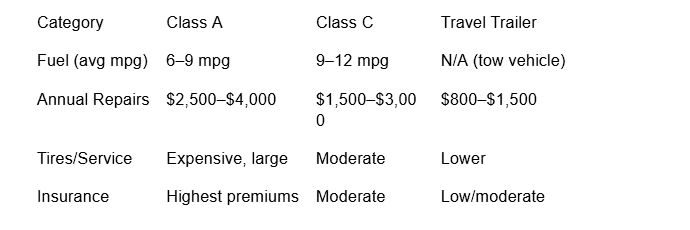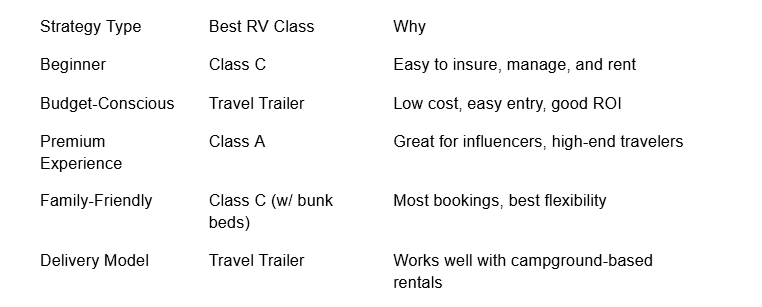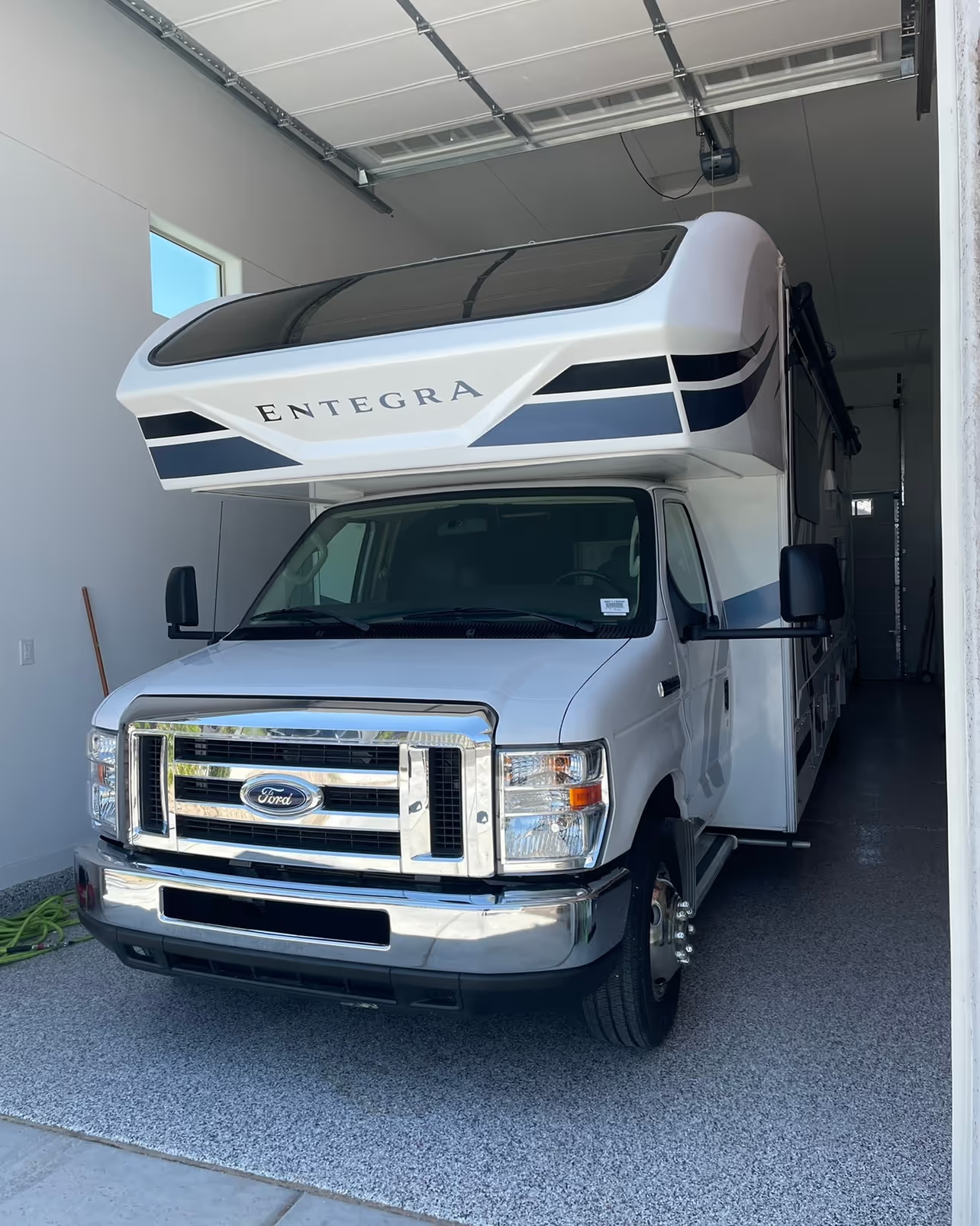Not all RV types perform equally in the rental market. While any well-maintained unit can earn, certain RV classes simply book faster, rent more often, and command higher nightly rates. If you're deciding between a Class A, Class C, or a travel trailer, this guide breaks down which one delivers the best financial return.
Backed by data from RV Management USA, this comparison will help you understand how each category performs in real-world rental conditions, including revenue potential, operating costs, guest demand, and long-term value.
Table of Contents
- Understanding the Core Differences Between Classes
- What the Numbers Say: Revenue, Occupancy & Profitability
- Cost of Ownership: Fuel, Repairs & Maintenance
- Guest Preferences: What Renters Actually Book
- Platform Performance: Booking Algorithms & Visibility
- Fleet Fit: Which Type Suits Your Strategy
- Final Verdict: Which One Should You Buy?
1. Understanding the Core Differences Between Classes


The core trade-off is size vs. simplicity vs. flexibility. Class A's deliver luxury but require more upkeep. Class C's offer balance. Trailers are cost-effective but require towing or delivery.
2. What the Numbers Say: Revenue, Occupancy & Profitability

Class C wins on volume and reliability. Class A’s have the highest potential revenue per night, but lower booking frequency. Trailers are ROI winners due to low cost of entry.
3. Cost of Ownership: Fuel, Repairs & Maintenance


While Class A units rent for more, they also cost more to maintain and operate. Class C RVs hit the sweet spot between cost and reliability. Trailers require less maintenance but more logistical effort.
4. Guest Preferences: What Renters Actually Book
Across booking platforms and RVM internal data:
- Class C RVs account for over 50% of all reservations
- Class A RVs appeal to a niche luxury segment
- Trailers rent well in campground-heavy regions with tow or delivery options
Renters typically prioritize simplicity, comfort, and price. Class C RVs offer the best mix.
5. Platform Performance: Booking Algorithms & Visibility
Class C RVs get preferential visibility across most rental platforms due to:
- Higher renter search volume
- More flexible size and layouts
- Platform filters often default to Class B/C range
Class A rigs may appear in luxury or specialty searches but suffer lower visibility overall. Trailers perform best when tied to geographic search terms like "campground delivery" or "stationary rental."
6. Fleet Fit: Which Type Suits Your Strategy

7. Final Verdict: Which One Should You Buy?

It comes down to your budget, market, and risk tolerance.

At RV Management USA, we recommend starting with a well-maintained Class C under 30 feet, especially if you’re looking for dependable, scalable income. Trailers are a great entry option if you’re in a high-campground or delivery-friendly region.
Whichever path you choose, make sure the RV matches your local rental demand, your risk appetite, and your operational capacity.
– RVM Team













